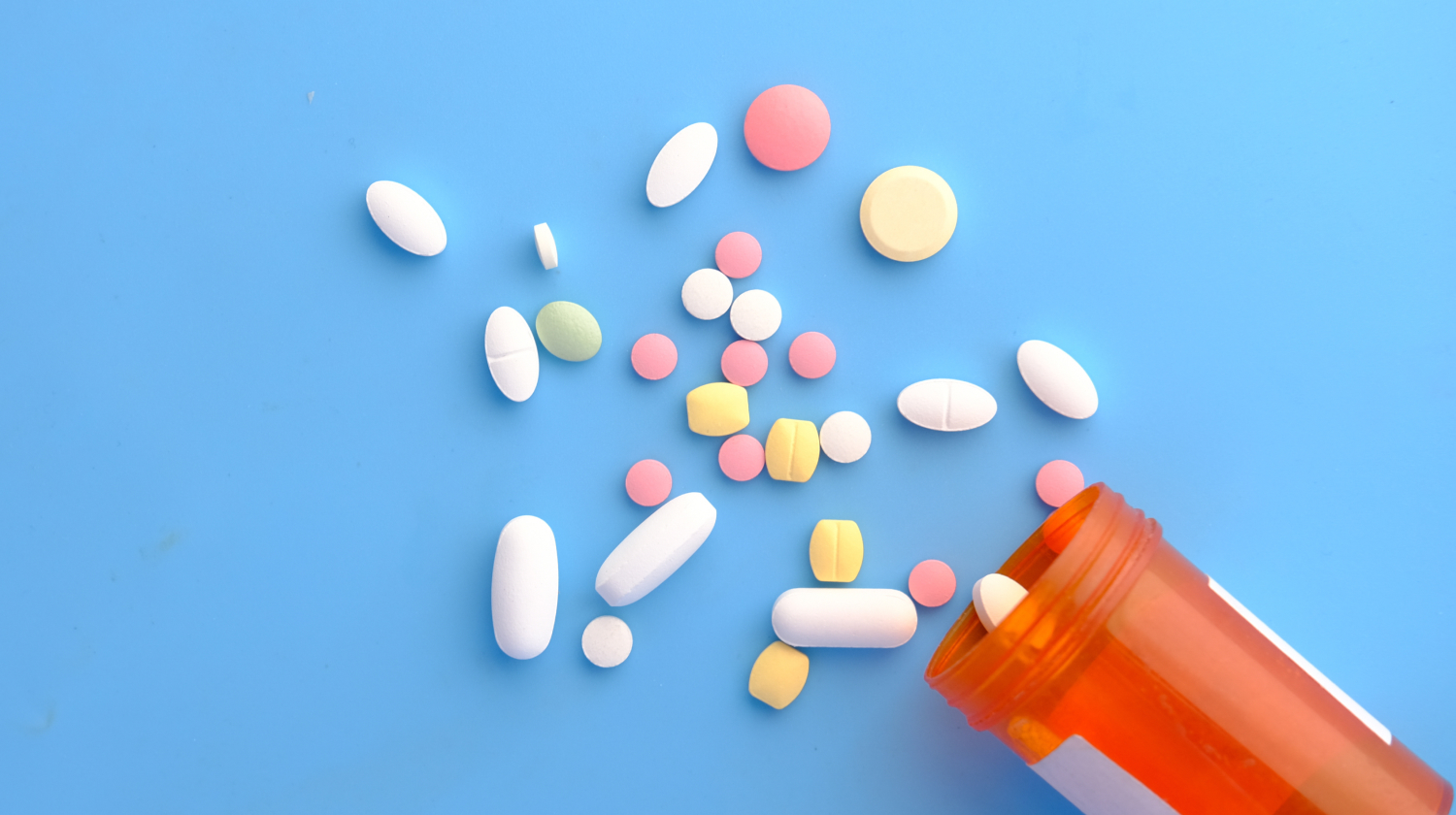Situational Depression: Symptoms, Causes & Treatment 2024

If you’ve just moved to a new city, have no friends, a stressful new job, and are strapped for cash and far from loved ones, chances are you might find yourself feeling pretty lonely and overwhelmed. You might even fall into a bit of a depression for a while, which would be completely normal and understandable.
Symptoms of depression can be triggered by a stressful event or situation, hence the term situational depression. It usually passes as you adapt or things get better, but for many, the situation at hand is so challenging that normal daily activities become too much. At any one time, 5-20% of people may be in treatment for adjustment disorder,[1] which is the term the DSM-5-TR uses for situational depression.[2]
Read on to find out the emotional or behavioral symptoms, causes, and what you can do to recover if you find yourself feeling depressed after a difficult life change.
Key Takeaways
- Situational depression often follows an overwhelming and stressful event.
- Symptoms of depression can last for up to six months or more if severe.
- A history of traumatic events, health issues, or family depression can increase your risk.
- Fortunately, a full recovery can be made with therapy, self-care, patience, and self-compassion.
What Is Situational Depression?
A situational depression definition is when you develop symptoms of depression due to extreme stress arising out of a specific life occurrence. It’s usually triggered by a highly stressful major life change, such as a significant geographical relocation for a job change or a heightened reaction after the death of a significant other.
The term isn’t a clinically recognized disorder, but it’s used to describe a type of adjustment disorder.[3] Rather than falling under a major depressive disorder, it’s instead related to a trauma or stress-related disorder.
The Diagnostic and Statistical Manual of Mental Disorders or DSM-5[4]-TR (2022) states that you may have an adjustment disorder with a depressed mood if you fall under these categories:
- You developed depression symptoms within three months of a stressful life event.
- You continuously feel higher levels of stress than normal after the event.
- You’re having difficulty maintaining normal work and personal life.
- Your symptoms are not the result of another mental health disorder or a normal grieving process after the death of a loved one.
How Long Does Situational Depression Last?
The severity and length of this disorder can vary by person, but it usually begins within three months of a triggering event and passes about six months after the event. For some, it may develop into a chronic condition if symptoms continue past six months and effective coping skills are not employed. If you can learn to develop self-compassion,[5] however, you’ll likely be able to manage the difficult moment better and recover more quickly.
Situational Depression Symptoms
How people display their depression will always vary. Symptoms may appear on harder days and be hidden in others, but either way, they can easily get in the way of going about your day.
These are some of the most common symptoms[3] of situational depression:
- Hopelessness.
- Feeling overwhelmed.
- Regularly sad or crying.
- Difficulty sleeping or eating normally.
- Loss of interest or enjoyment in activities.
- Relentless feelings of worry, anxiety, or stress.
- Avoiding social situations and isolating yourself.
- Inability to take care of responsibilities, such as working or paying the bills.
- Thoughts of suicide or self-harm.
If you’ve noticed any of these symptoms in yourself or a loved one, schedule an appointment with a doctor and mental health professional to begin the healing process. If the crisis is immediate, call the free National Suicide Prevention Lifeline at 988 or text HOME to 74174.
Causes Of Situational Depression
Difficult life events that trigger extreme stress or trauma are most likely to cause situational depression. These are some of the most common experiences that induce depression:
- Relationship problems, such as divorce.
- Difficult financial situations, such as the loss of a job.
- Life changes, such as retirement, having a baby, or moving.
- Traumatic events, such as an accident, natural disaster, or physical assault.
- Living or working in an unsafe or stressful environment.
- Discovering a medical illness.
- Death of a loved one.
People With High-Risk
You might be at a higher risk of developing situational depression if you already have other stressful experiences or situations to manage, such as:
- Substance abuse.
- Family history of depression.
- Another mental illness, such as anxiety or bipolar disorder.
- Physical or emotional childhood trauma.
- Brain chemistry or structural abnormalities.
- A chronic health issue, such as diabetes, obesity, or a hormonal disorder.
If you are at a higher risk of developing situational depression, it’s best to seek professional help to ensure a swift recovery and prevent the development of a more severe[6] and chronic major depressive disorder.
Situational Depression Treatment
Once you’ve noticed symptoms of depression, it’s always best to schedule a doctor’s appointment to ensure there aren’t any underlying medical conditions. As well, psychological treatment, whether in a support group[7] or private therapy, can help you address and manage the situation better.
While symptoms may dissipate as you adjust with time or the situation improves, professional help can allow you to improve more quickly and avoid further suffering. Here are some of the most common treatment options:
Talk-Therapy

Research[8] shows time and time again that psychotherapy is the best option for those struggling with depressive symptoms. A therapist can help you learn how to manage your symptoms and discover new coping tools to prevent stress from increasing. Cognitive behavioral therapy, or CBT, is usually the first line-line and most effective treatment.[9]
The benefit of having a trained professional available to you for regular support and knowledge is highly underrated. Some of the biggest emotions behind situational depression are feeling lonely, unsupported, and overwhelmed — which is exactly what a therapist can offer to help reduce. Humans are wired to work on support, so consider trying free support groups or setting up a free appointment to find the best therapist for you.
Medication

If you’re not responding to talk therapy at all and you’ve already been cleared as physically healthy, your therapist might refer you to a psychiatrist to assess if medication is the best next step. Certain medications can help you get through your day better and make it easier to cope with stressors. However, it’s not recommended to use psychotropic drugs[10] for adjustment disorder with anxious or depressed moods.
The most common medications for depression symptoms are selective serotonin uptake inhibitors, or SSRIs, and dopamine reuptake blockers. As always, psychiatrists recommend that you continue with psychotherapy, even if you need medication. This is an essential step that can’t be overlooked on your path to recovery because coping tools still need to be learned, monitored, and used effectively. Developing resilience and accepting the situation can only come with emotional processing, time, and support.
How To Deal With Situational Depression
After getting a doctor’s appointment and setting up regular therapy, your next step is taking care of yourself as best you can. This includes
- Scheduling daily rest time.
- Creating a healthy sleep routine.
- Moving your body in a fun way for at least 150 minutes a week.
- Adding nutrient-dense foods to your daily diet.
- Including a multivitamin and probiotics to ensure gut health.
- Prioritizing socializing and time with loved ones, even via video call.
- Going to nature as often as possible or walking in green spaces for 10 to 20 minutes a day.
- Finding ways to express yourself emotionally, such as regular journaling, dancing, painting, or photography.
- Learning how to become self-compassionate, like writing regular letters of self-compassion to yourself and working on removing negative self-talk.
In mild cases of situational depression, self-care and coping strategies[11] might be enough to speed up the recovery process. If it’s severe, however, a professional treatment plan may make all the difference in the world.
One thing to remember is to focus on creating a problem-solving mindset rather than allowing yourself to ruminate. Pick one thing to put your energy towards that you’d like to improve. It doesn’t necessarily have to be the situation itself; you could choose a self-care activity to work on instead — whatever keeps you focused on the future and taking action. For some, that’s diving into a work or personal project, like applying for new jobs or taking up hiking or CrossFit.
The Bottom Line
Situational depression is an adjustment disorder that develops after particularly stressful life events. It often follows a big life change, like a move, divorce, or loss of a loved one. For some, the symptoms of depression are mild and can pass within about six months or so of the event. For others, the severity may be so intense that they interfere with the ability to carry out normal daily tasks.
If you want to learn how to deal with situational depression, professional help through talk therapy is the best option. Those who can learn new coping tools, focus on problem-solving, and prioritize self-care, have a better chance of recovery.
Finally, remember that a little bit of self-compassion goes a long way. The more you can work on reducing that harsh inner critic, the more patient and understanding you’ll be with yourself and the situation. It will also help make it easier to push yourself towards taking action on problem-solving, self-care, and therapy. After all, the harder you are on yourself, the harder it will be to recover from situational depression.
While it may sound simple, science proves that self-kindness is one of the best things you can do to improve your mental health and weather the storm.
+ 11 sources
Health Canal avoids using tertiary references. We have strict sourcing guidelines and rely on peer-reviewed studies, academic researches from medical associations and institutions. To ensure the accuracy of articles in Health Canal, you can read more about the editorial process here
- Media, S. (2020). Adjustment Disorder DSM-5-TR. [online] Symptom Media. Available at: https://symptommedia.com/adjustment-disorder-dsm-5/
- American Psychiatric Association. (2016). Supplement to DIAGNOSTIC AND STATISTICAL MANUAL OF MENTAL DISORDERS, FIFTH EDITION. [online] Available at: https://dsm.psychiatryonline.org/pb-assets/dsm/update/DSM5Update2016.pdf#page=19
- Mayo Clinic. (2022). Adjustment disorders – Symptoms and causes. [online] Available at: https://www.mayoclinic.org/diseases-conditions/adjustment-disorders/symptoms-causes/syc-20355224
- and, A. (2016). Table 3.19, DSM-IV to DSM-5 Adjustment Disorders Comparison. [online] Nih.gov. Available at: https://www.ncbi.nlm.nih.gov/books/NBK519704/table/ch3.t19/
- Self and Identity. (2023). Self-Compassion: An Alternative Conceptualization of a Healthy Attitude Toward Oneself. [online] Available at: https://www.tandfonline.com/doi/abs/10.1080/15298860309032
- Mayo Clinic. (2022). Depression (major depressive disorder) – Symptoms and causes. [online] Available at: https://www.mayoclinic.org/diseases-conditions/depression/symptoms-causes/syc-20356007
- Mental Health America. (2023). Find Support Groups. [online] Available at: https://www.mhanational.org/find-support-groups
- David, D., Cristea, I. and Hofmann, S.G. (2018). Why Cognitive Behavioral Therapy Is the Current Gold Standard of Psychotherapy. Frontiers in Psychiatry, [online] 9. doi:https://doi.org/10.3389/fpsyt.2018.00004.
- Leterme, A.C., Behal, H., Demarty, A.L., Barasino, O., Rougegrez, L., Labreuche, J., Duhamel, A., Vaiva, G. and Servant, D. (2020). A blended cognitive behavioral intervention for patients with adjustment disorder with anxiety: A randomized controlled trial. Internet Interventions, [online] 21, p.100329. doi:https://doi.org/10.1016/j.invent.2020.100329.
- Carta, M., Balestrieri, M., Murru, A. and Hardoy, M. (2009). Adjustment Disorder: epidemiology, diagnosis and treatment. Clinical Practice and Epidemiology in Mental Health, [online] 5(1), p.15. doi:https://doi.org/10.1186/1745-0179-5-15.
- Cognitive Behaviour Therapy. (2016). Self-help interventions for adjustment disorder problems: a randomized waiting-list controlled study in a sample of burglary victims. [online] Available at: https://www.tandfonline.com/doi/abs/10.1080/16506073.2016.1191083



